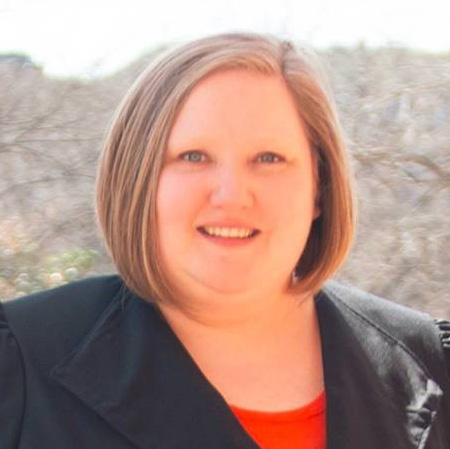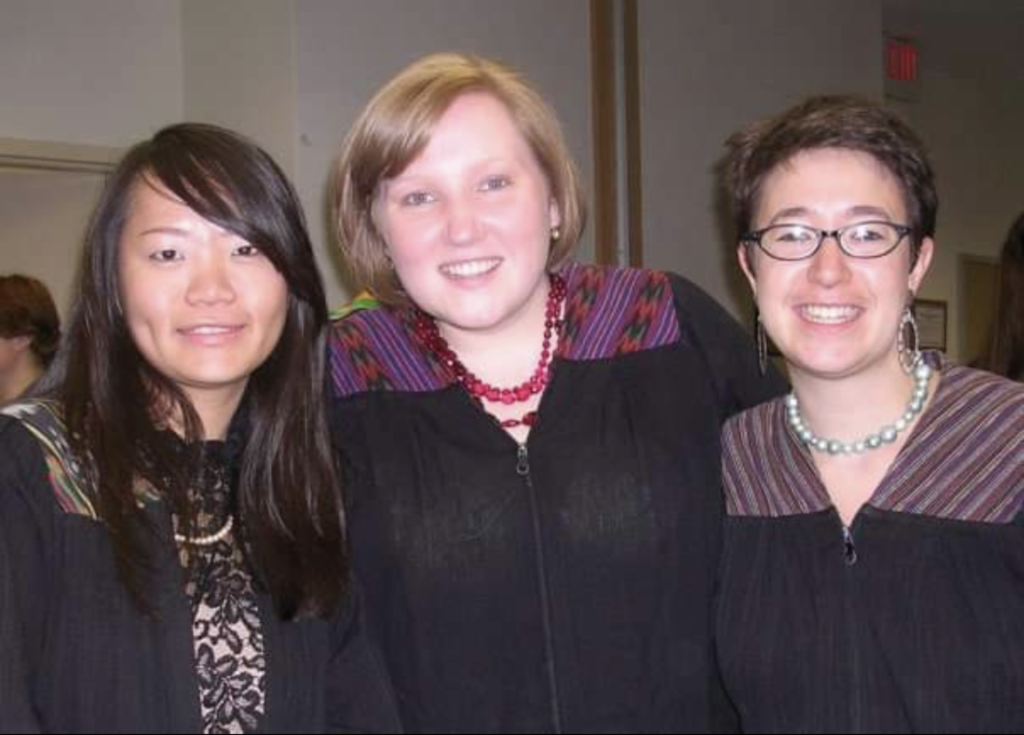The business of study abroad
SIT alumna advances international education in a business school environment
November 8th, 2022 | Careers, SIT Graduate Institute

SIT alumna Caitlin Kelley is director of the Center for Advanced Global Leadership and Engagement (CAGLE), the hub of global initiatives for the Spears School of Business at Oklahoma State University.
Caitlin has an MA in international education from SIT Graduate Institute, an MA in communication with a focus on intercultural communication from the University of Alabama, and a PhD in higher education leadership from Oklahoma State University in progress. She has worked with international students at the University of Arkansas, Kansas State University, Alabama, and Georgia Tech, but this is her first role specifically with business students.
We caught up with her to talk about her position, her focus, and her plans to expand the scope of the center that she leads. We started by asking what drew her to a business school environment.
“Part of it was happenstance. We moved to Stillwater, Oklahoma, to follow my husband’s career. In a town of 55,000 with a big research institution right in the middle of it, with a background in international education, this is the institution to be part of. The business school here is known to be internationally minded: 50 percent of the study abroad that happens here is from the business school. Pre-Covid, that was about 550 students per year who went abroad on short-term, faculty-led programs coordinated through the business school during summer, winter and spring breaks.”
Caitlin said OSU’s business students participate in programs around the world. This year, her center is offering 13 programs including one in Thailand that was in the planning stages pre-Covid. Still, she said, traditional locations dominate.
Part of the joy of that experience is that they’re doing something first and becoming champions for these destinations.
“Our longest-running program is in London; that’s been going for more than 30 years so we have a deep history of alumni contacts who end up working in London, But our students are drawn to all of the common destinations. I could fill an Italy trip every term if I tried.
“But we are also encouraging them to think of non-traditional destinations. We have a group of students that come in as scholar leaders. It’s almost like an honors experience within the college of business. One aspect of the program is a pre-selected study abroad experience and we have chosen some non-traditional destinations. Students this year will go to South Africa, and Singapore is under consideration as a 2024 destination. Part of the joy of that experience is that they’re doing something first and becoming champions for these destinations.”
Outside of sending students abroad, Caitlin says she is also looking at ways to expand the scope of international experiences available through CAGLE, including strong partnerships with international institutions, faculty exchanges, lectures, and events. She is having conversations with faculty about how they engage with their peers internationally—relationships that can grow into institutional partnerships—and about their research, publications, and publishing. She notes that the journals faculty members read, and those in which they publish, often focus on western European research.
It’s important that our students take these intercultural values into their positions.
“So, we’re thinking about what it looks like to have partnerships that create an opportunity for mobility but also collaboration on both the faculty and student side. We’ve had deep partnerships with institutions at the graduate level, but we’re also thinking about what partnerships would help us with our undergrads, not just in terms of hosting students. European universities have gotten really good at offering customized services that almost feel like a provider. What I mean is partnerships that facilitate, for example, how students interact in an online class together, or short-term faculty exchanges that can advance research agendas.
“I came into a center that is ready for this, which is exciting, and I’m working with faculty who want to be doing all the different things they can to advance international education.”

We asked Caitlin how her SIT experience helped prepare her for this role.
“In all sorts of ways! I’m still thinking back on what I learned in that program. We are redesigning our outbound orientations. They were heavy on content, and that’s important, but lacking in intercultural communication skills that can get students ready for an international experience. I’m thinking back to my SIT planning courses and an approach that is more student-centered, more experiential."
We’re in Oklahoma, so our students will be working for oil companies and other corporate interests. So, it’s important that our students take these intercultural values into their positions.
Finally, Caitlin said that in approaching a position within a business school, she thought carefully about whether it “made sense for my passions and my background.”
“I found that it does. I want these students who are going into business to be ready for a global environment. We’re in Oklahoma, so our students will be working for oil companies and other corporate interests. So, it’s important that our students take these intercultural values into their positions.”
In a story on her university’s website, Caitlin put it this way: “Business is global. As our students graduate, many of the opportunities that they seek will include a global component, such as working with clients in other countries, having co-workers from abroad, or working in multinational companies with branches across the globe. No matter the scope, having a better understanding of the world, the people in it, and diverse business practices will give students a better foundation for going into the global workforce.”
